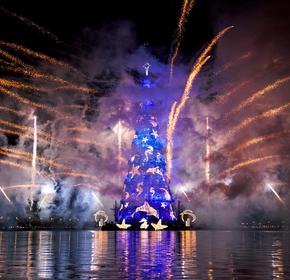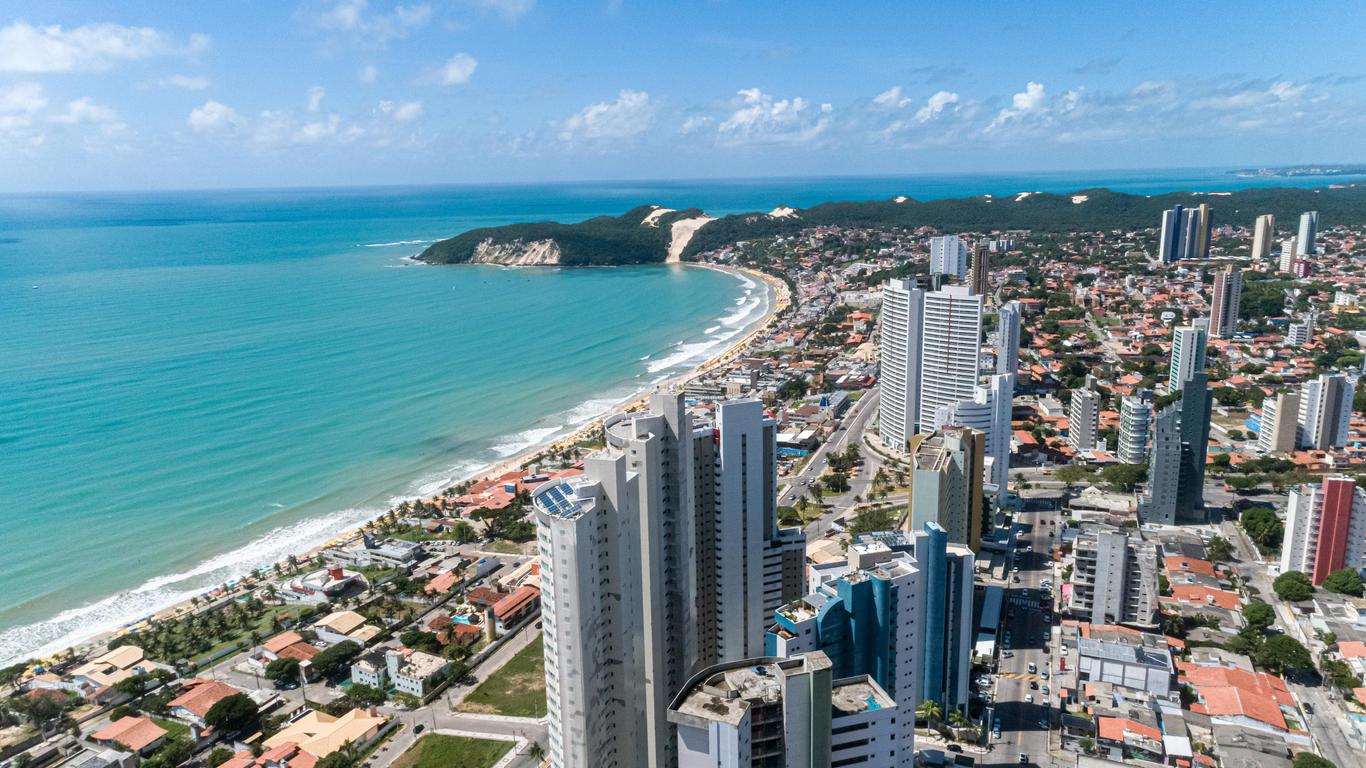
Natal travel guide
Natal Tourism | Natal Guide
You're Going to Love Natal
When you want to get away from it all, bask in warm beach sunsets and steep yourself in local Brazilian culture and history, Natal is your destination. Home to many affluent locals and vacationers alike, this north Atlantic coastal city is safer than Salvador or Recife and features plenty of beautiful parks, scenic ocean views, historical architecture and modern shopping centers.
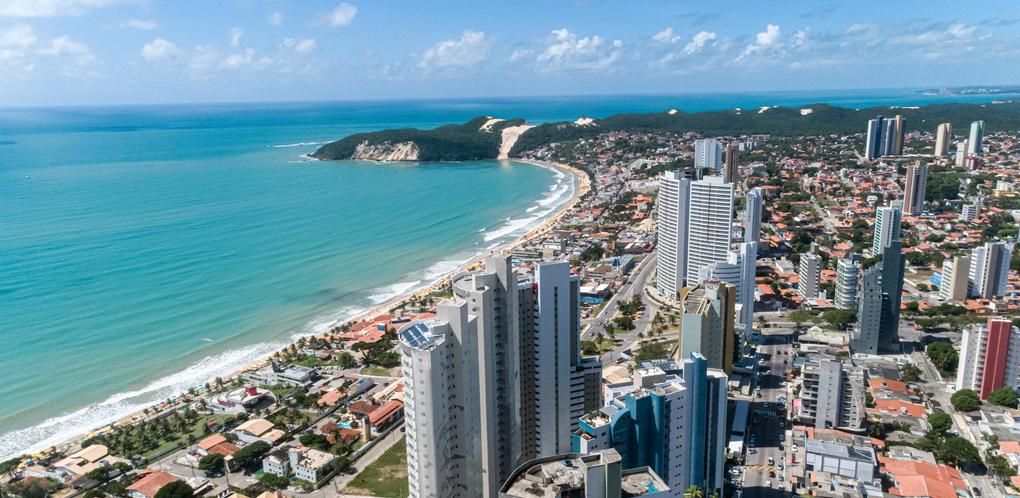
Top 5 Reasons to Visit Natal
1. Visit the Pristine Beaches
Whether you'd like to work up a tan on the warm sand dunes or hit the choppy waters aboard a water-buggy, Natal's variety of crystalline blue beaches have something for everyone.
2. Take in the Intricate Architecture
From the Alberto Maranhão Theatre (a neoclassical style building) to the five-pointed, star-shaped Forte dos Reis Magos, Natal's architecture makes for postcard-ready shots.
3. Get Back in Touch with Nature
Take the time to go swimming with the fishes on a snorkeling tour or take a hike on the trails of Parque das Dunas.
4. Check out Ponta Negra's Nightlife
Here is where the youth and families looking for great food and an even better atmopshere converge. Enjoy live shows and events on Via Costeira and Artistas Beach.
5. Don't Miss the Local Shopping
Handicrafts and craft-making are at the heart of Natal's local market charm, so make sure to visit the Centre of Tourism in district of Petrópolis for lots of great options on local spices, crafts and even home decor.
What to do in Natal
1. Estatua dos Reis Magos: Three Kings
Also known as the Three Wise Men or the Three Kings, this set of statues looms large over landscape of Natal. Meant to refer to the three kings in the Biblical tradition, the statues are made of shimmering white concrete but look as soft as soapstone. They stand at the entrance to Natal, welcoming all visitors driving on the winding road. Right across the Three Kings is the monument of the shooting star.
2. Christmas Metropolitan Cathedral: Design First
The Metropolitan Cathedral in Natal resembles a modern museum or administrative building far more than any majestic church with spires and Gothic architecture. Indeed, even its interiors are full of straight, plain lines and the only circular structure in sight is the large, ring-shaped altarpiece at the front. The Metropolitian Cathedral is certainly the most modern of all its contemporaries, with a distinct deference to concrete, steel, and glass.
3. Árvore de Natal do Conjunto Mirassol: A Festival of Lights
Looming large over the city of Natal is the annual Árvore de Natal do Conjunto Mirassol, a massive conical structure that is lit up to resemble a Christmas tree. Its configurations, colors and designs changes each year but the way it infuses holiday spirit into traveler and residents alike is the same every year. The Christmas Tree usually includes several bands of light and color and the specs for its size are as impressive as the effort that goes into setting it up each year: it stands at 413 feet and 8 uses thousand sets of LED bulbs, each of these having 100 micro bulbs within. This means that there are a total of eight hundred thousand bulbs in green, yellow, blue and amber.
4. Museum of Popular Culture: Homage to Local Indigenous Culture
Hidden in Ribeira is the Museum of Popular Culture which opened in 2008 and isn't quite the "trip" traveler expect: instead of being about "pop" culture, the term is a tongue-in-cheek name for a museum that actually pays homage to and focuses on the local indigenous culture and history. After all, these individuals made up "popular" culture at one time. The sprawling collection features 1500 individual pieces, including sculptures, paintings, crafts and photos taken by local indigenous artists. The exhibits themselves are divided by theme and each room focuses on subjects such as knowledge, activities, art, religions, rituals, dances and traditions.
5. Genipabu Lagoon: Movable Dunes
The beautiful Genipabu Lagoon is an environmental reserve and protected area, but that doesn't mean you can't roam its roving, sandy, dunes. Because of the wind off the coast of the Rio Grande, the lagoon's sand dunes blow and whip around, almost as though it were a desert. Indeed, don't be surprised to see a caravan of camels making its way in a single file. When you relax on its shores and look into its bright blue waters, you'll be hard pressed to remember you're still in Brazil. If you're feeling particularly adventurous, use a wooden board to slide down the dunes, an activity called "esquibunda".
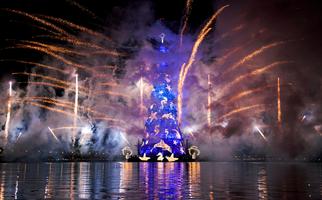
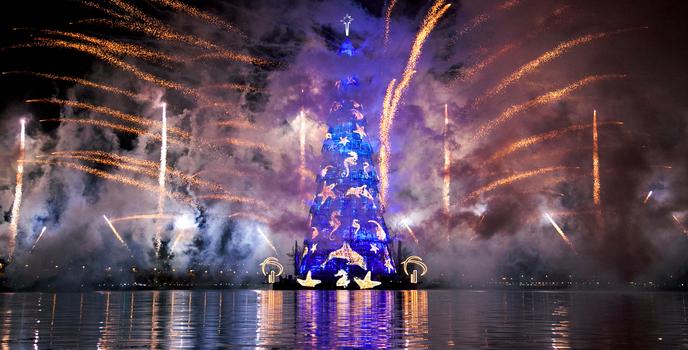
1. Estatua dos Reis Magos: Three Kings
Also known as the Three Wise Men or the Three Kings, this set of statues looms large over landscape of Natal. Meant to refer to the three kings in the Biblical tradition, the statues are made of shimmering white concrete but look as soft as soapstone. They stand at the entrance to Natal, welcoming all visitors driving on the winding road. Right across the Three Kings is the monument of the shooting star.
2. Christmas Metropolitan Cathedral: Design First
The Metropolitan Cathedral in Natal resembles a modern museum or administrative building far more than any majestic church with spires and Gothic architecture. Indeed, even its interiors are full of straight, plain lines and the only circular structure in sight is the large, ring-shaped altarpiece at the front. The Metropolitian Cathedral is certainly the most modern of all its contemporaries, with a distinct deference to concrete, steel, and glass.
3. Árvore de Natal do Conjunto Mirassol: A Festival of Lights
Looming large over the city of Natal is the annual Árvore de Natal do Conjunto Mirassol, a massive conical structure that is lit up to resemble a Christmas tree. Its configurations, colors and designs changes each year but the way it infuses holiday spirit into traveler and residents alike is the same every year. The Christmas Tree usually includes several bands of light and color and the specs for its size are as impressive as the effort that goes into setting it up each year: it stands at 413 feet and 8 uses thousand sets of LED bulbs, each of these having 100 micro bulbs within. This means that there are a total of eight hundred thousand bulbs in green, yellow, blue and amber.
4. Museum of Popular Culture: Homage to Local Indigenous Culture
Hidden in Ribeira is the Museum of Popular Culture which opened in 2008 and isn't quite the "trip" traveler expect: instead of being about "pop" culture, the term is a tongue-in-cheek name for a museum that actually pays homage to and focuses on the local indigenous culture and history. After all, these individuals made up "popular" culture at one time. The sprawling collection features 1500 individual pieces, including sculptures, paintings, crafts and photos taken by local indigenous artists. The exhibits themselves are divided by theme and each room focuses on subjects such as knowledge, activities, art, religions, rituals, dances and traditions.
5. Genipabu Lagoon: Movable Dunes
The beautiful Genipabu Lagoon is an environmental reserve and protected area, but that doesn't mean you can't roam its roving, sandy, dunes. Because of the wind off the coast of the Rio Grande, the lagoon's sand dunes blow and whip around, almost as though it were a desert. Indeed, don't be surprised to see a caravan of camels making its way in a single file. When you relax on its shores and look into its bright blue waters, you'll be hard pressed to remember you're still in Brazil. If you're feeling particularly adventurous, use a wooden board to slide down the dunes, an activity called "esquibunda".


Where to Eat in Natal
When you're looking to chow down, head to A Cantina da Praia in Ponta Negra for all-you-can-eat meals for R$12.
When to visit Natal
While it is humid, the maximum temperature in Natal is between 68°F and 89°F due to the cool Atlantic coastal breeze that hits the town. It experiences almost 1900 hours of sunshine a year - so, visit any time!
How to Get to Natal
Plane
Natal's Governador Aluízio Alves International Airport is 15.5 miles from the city center. Take the bus from the terminal for R$2.60. Alternatively, get to Ponta Negra using a taxi for R$43.
Train
While there are a few different rail transport trains in Brazil, Natal does not have any.
Car
Traveling from other cities like Recife to Natal takes no time at all. Use the BR 101 northwards and exit on the RN 120 halfway through. The journey takes about 4-5 hours.
Bus
Buses run frequently from Natal to cities like Fortaleza for R$35-150, to Recife for R$42-R$60 and to João Pessoa. The bus station is located 1.9 miles from the city center.
Airlines serving Natal
Where to stay in Natal
Ponta Negra - It is one of the most affluent neighborhoods, featuring upscale hotels, thronging nightlife venues and bars as well as great shopping centers and beaches.
Popular Neighborhoods in Natal
Petrópolis - Tall, imposing residential buildings juxtapose the this neoclassical tourism center, with its long tradition of craft shops and local handiwork kiosks in this district.
São Gonçalo do Amarante - This neighborhood plays host to the São Sebastião festival and there are lots of beautiful churches and restaurants featuring fresh seafood.
Where to stay in popular areas of Natal
Most booked hotels in Natal
How to Get Around Natal
Public Transportation
Buses in Natal cost around R$2.65 but the routes can get crowded. You can use the city bus to get to major shopping centers, such as the Midway Mall.
Taxi
Fares for taxis start at R$4.15 and it's R$3.48-R$4.68 per mile after that.
Car
Rent a car in Natal using companies like Mirassol or Accesso, with rates starting from R$70.
The Cost of Living in Natal
Shopping Streets
Check out the Alecrim neighborhood for markets and fairs. Serious shoppers will love Midway Mall or Praia Shopping.
Groceries and Other
A quart of milk costs R$4 and a dozen eggs cost R$7.
